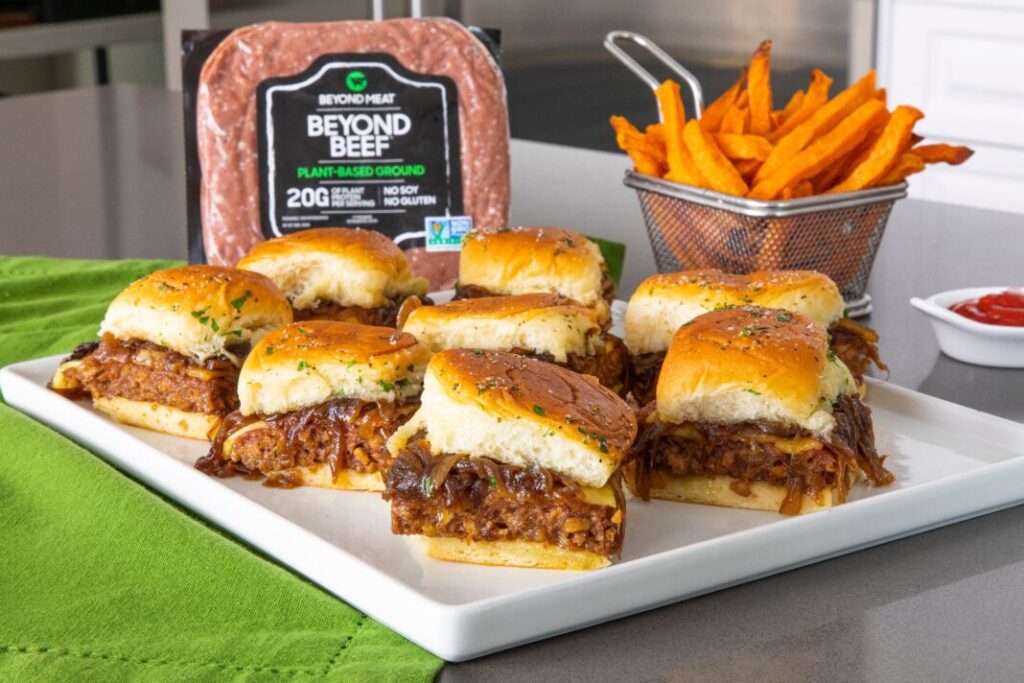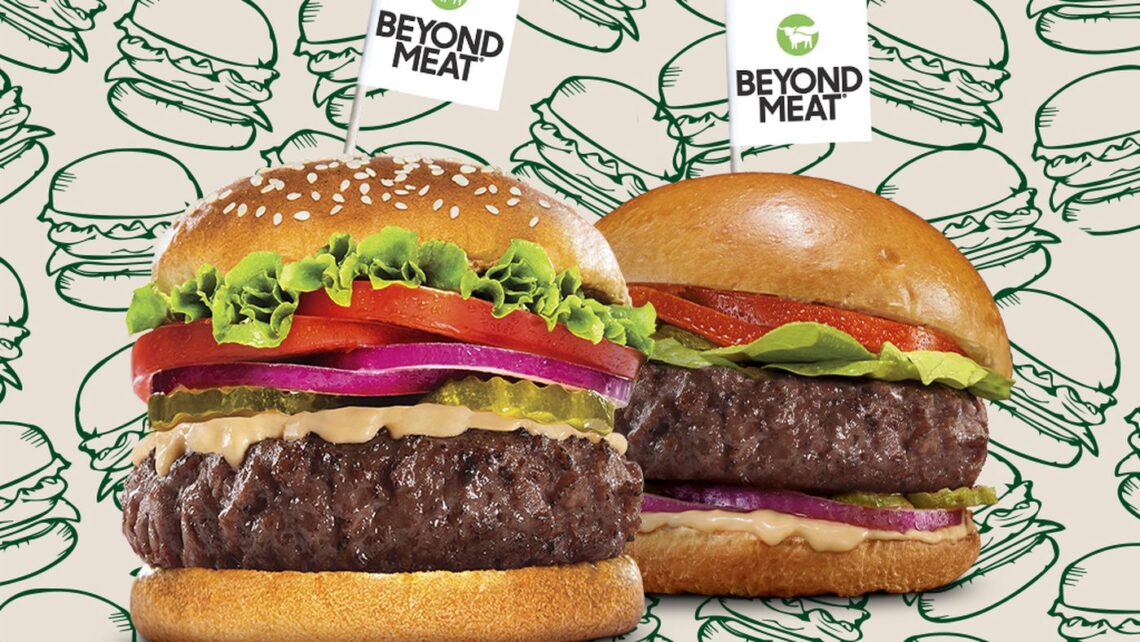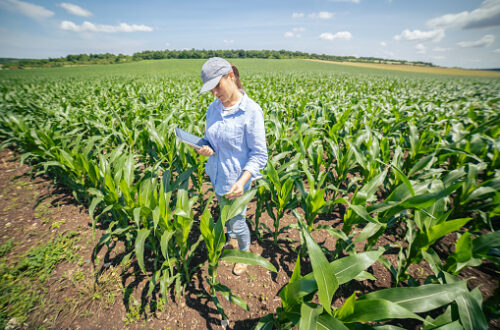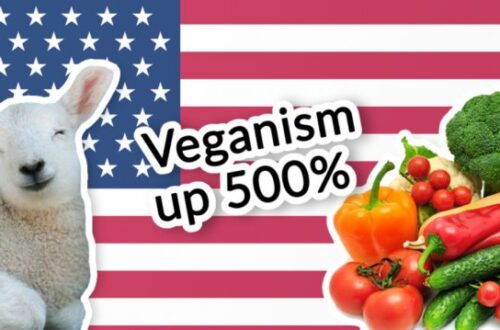Is the rise of meatless meat the fall of healthy eating?
It’s the rise of the meatless meat! Who knew that burgers would be the food to lure meat eaters over to the ‘dark side?’ Restaurants know this, which is why they are adding plant based burgers to their menus at the speed of light. Popular plant based food brands know this, which is why meat eaters are their target market. In fact, Impossible Foods estimates that 95% of its customers are omnivores.
Popular meatless burger companies have literally shocked the world by showcasing their ability to give their products the flavor, macronutrient balance, and cooking experience of meat. Consider the infamous Impossible Burger. Impossible Food’s Impossible Burger is so realistic that it literally bleeds like actual meat. Made from a meat protein called heme, which is made from yeast, the Impossible Burger has some meat eaters saying that it even has more flavor than meat. Others say that the Impossible Burger has a nice chew to it that is reminiscent of the fat content in a meat burger.

Similarly, Beyond Meat burger samplers have said that though it looks like a real burger the flavor is milder. Others say that it fills you up like a regular burger and is very satisfying. This meatless meat phenomenon is bursting open the minds of meat eaters across the globe. Or is it?
Inarguably, plant based burgers are food chemistry at its finest. However, though meatless burgers are taking the world by storm many critics are not impressed. Some say it’s not encouraging the masses to displace animal products in their diets and adopt healthier eating habits. In fact, it could be doing quite the opposite. Let’s explore some reasons why.

First up is the ingredients. Meatless burgers aren’t exactly ‘healthy’ food. The ingredients in the two most popular meatless burger brands only emphasize this fact. For example, Impossible Burgers contain cultured dextrose. Cultured dextrose is a cultured, or fermented, food product. It’s made by combining dextrose, which is the simple sugar glucose, with the bacteria Propionibacterium freudenreichii. Dextrose use can lead to dangerously high blood sugar or fluid buildup in the body, which may cause swelling and fluid in the lungs.
In addition, both Impossible and Beyond Meat burgers contain methylcellulose. Methylcellulose is a chemical compound derived from cellulose. CCF Health & Wellness state that it’s a filler used to add bulk rather than more real ingredients. They go on to say that methylcellulose is a cheap additive that allows processed food manufacturers to increase the weight and improve the texture of products without adding any nutritional benefits.

Meanwhile, some critics call it ultra-processed junk food. Ryan Mendelbaum wrote in Gizmodo, “If you’re wanting a nutritious, heart-healthy meal, you can and should eat vegetables and whole grains and fruits and all the other stuff that everyone knows they should be eating.” Echoing those sentiments was Whole Foods CEO, John Mackey. Mickey told CNBC that he isn’t sold on the health benefits of plant-based meats. Mackey went on to explain that plant based burgers are good only as a transition food to reeducate the palate and wean people off of meat products.
So do meatless burgers mark the displacement of animal products from the food industry? According to many skeptics, probably not. CNET reported that after sampling meatless burgers many meat eaters declined giving up meat claiming, ‘Hey, how else can I get protein in my diet without necessarily adding more meat?’ NPD Group found 90% of plant-based-meat eaters also eat real meat on the regular. Hence, animal products won’t likely be displacement by plant based burgers anytime soon. Meatless burgers may continue to grow in popularity as a more ethical, healthy alternative. However, it may take something more to change our meat-centric food industry.
What do you think? Is the rise of meatless meat the fall of healthy eating?





